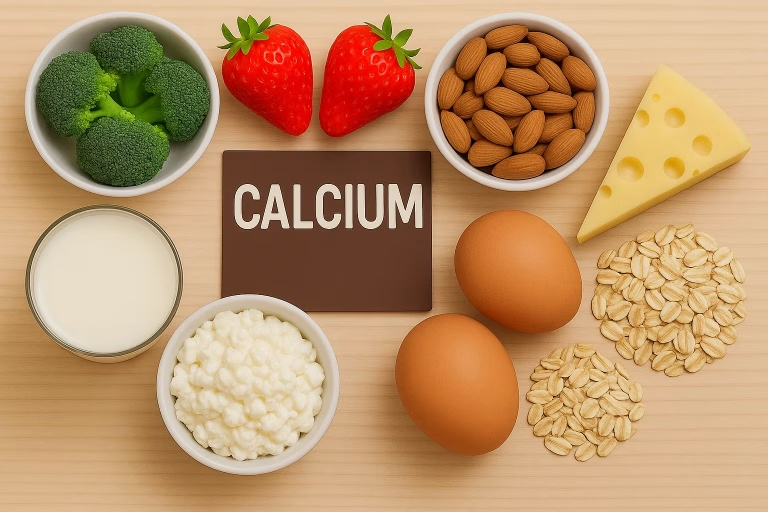In-Depth Magnesium Review for Adults Over 40
Support your energy, sleep, bones, and heart with the often-overlooked mineral your body craves more as you age. Learn more in our in-depth magnesium review.
Why Magnesium Matters More as You Age
After 40, many adults experience gradual changes in metabolism, muscle mass, bone density, and sleep quality. Magnesium plays a vital role in all of these processes. Unfortunately, modern diets often fall short in providing adequate levels of this essential mineral. Moreover, age-related changes in absorption and increased excretion due to medications or stress make deficiency more likely. This is why for us it is important to create the best possible magnesium review.
What Magnesium Does in the Body
Magnesium is required for over 300 enzymatic processes in the body. These include:
– Energy production via ATP synthesis
– Protein synthesis and muscle repair
– Nervous system function and mood regulation
– Cardiac rhythm and blood pressure control
– Glucose metabolism and insulin sensitivity
– Bone structure maintenance and calcium utilization
– Stress response regulation and improved sleep cycles
Signs You Might Be Low in Magnesium
Subclinical magnesium deficiency can manifest subtly over time. Watch for:
– Fatigue or general low energy
– Muscle cramps or twitching
– Poor sleep quality
– Anxiety or irritability
– Brain fog or difficulty concentrating
– Irregular heartbeat
– Headaches or migraines
– Weakness or bone thinning
Top Causes of Magnesium Deficiency After 40
– Aging: Reduces absorption efficiency
– Medications: PPIs, diuretics, antibiotics, and statins can lower magnesium
– Diet: Processed foods, low in leafy greens, nuts, and seeds
– Alcohol: Increases urinary magnesium loss
– Stress: Raises magnesium excretion due to cortisol release
Types of Magnesium Supplements: Which One Should You Choose?
Not all magnesium supplements are created equal. Some are poorly absorbed or cause digestive issues. Here’s a quick breakdown:
1. Magnesium Glycinate – Best for sleep, anxiety, and stress. Gentle on the stomach.
2. Magnesium Citrate – Good absorption, can help with mild constipation.
3. Magnesium Malate – Great for energy and muscle pain. Ideal for fatigue.
4. Magnesium L-Threonate – Best for cognitive support and brain function.
5. Magnesium Oxide – High in magnesium by weight, but poorly absorbed. Often causes diarrhea.
6. Magnesium Chloride – Decent absorption, used in topical applications too.
Top 5 Magnesium Supplements for Adults Over 40
**1. Magnesium Breakthrough by BiOptimizers**
Contains 7 forms of magnesium. Designed for total body support, from mood to muscles.
**2. Thorne Magnesium Bisglycinate**
Highly bioavailable, NSF Certified. Great for sensitive stomachs and sleep.
**3. Doctor’s Best High Absorption Magnesium**
Uses chelated magnesium lysinate/glycinate. Budget-friendly and effective.
**4. Jigsaw Health Magnesium w/SRT**
Sustained-release formula reduces side effects and provides consistent absorption.
**5. Magtein (Magnesium L-Threonate)**
Clinically studied for cognitive support. Ideal if brain fog or memory issues are present.
How Much Magnesium Do You Need After 40?
– Men: 400–420 mg/day
– Women: 310–320 mg/day
However, needs may vary depending on diet, medication, and health status. Blood tests are rarely accurate for magnesium levels since most of it resides in cells and bones.
When and How to Take Magnesium
– Time of Day: Take in the evening for sleep support or in the morning with food for energy.
– With Food or Empty Stomach?: Best taken with food to avoid digestive discomfort.
– Divided Doses: Consider splitting larger doses across the day to avoid loose stools.
Magnesium and Sleep: A Game Changer After 40
If you’re over 40 and struggle with falling or staying asleep, magnesium might be the missing link. It binds to GABA receptors, calming the nervous system. Magnesium glycinate or citrate is ideal for this purpose. Clinical trials have shown improved sleep quality and reduced cortisol levels.
Cognitive Benefits and Magnesium L-Threonate
This form of magnesium has a unique ability to cross the blood-brain barrier. It’s shown promise in studies for memory, cognitive flexibility, and preventing age-related cognitive decline. While more expensive, it may be worth it for those with brain fog or early memory issues.
What About Topical Magnesium?
Magnesium oil or creams can be applied directly to sore muscles or the feet before bed. While oral absorption is more studied, topical methods may benefit those with digestive issues or absorption problems.
Potential Side Effects and Interactions
Magnesium is generally safe but excessive intake may lead to:
– Diarrhea or loose stools
– Nausea
– Cramping
Medication Interactions:
– Blood pressure medications
– Diuretics
– Certain antibiotics (tetracyclines, quinolones)
– Osteoporosis meds (bisphosphonates)
Expert Recommendations from our magnesium review
– Start with 200–300 mg of magnesium glycinate or citrate
– If you experience fatigue, try magnesium malate
– For mental clarity or memory, use magnesium L-threonate
– Always consult your healthcare provider if you’re on medications or have kidney conditions
Final Thoughts: Is Magnesium Worth It After 40?
Absolutely. With stress, diet, and age-related changes working against your magnesium levels, a well-chosen supplement can help restore balance. Whether you’re battling insomnia, fatigue, anxiety, or aches, magnesium offers wide-ranging benefits without the high cost or side effects of many medications. We hope you enjoyed our in-depth magnesium review.







